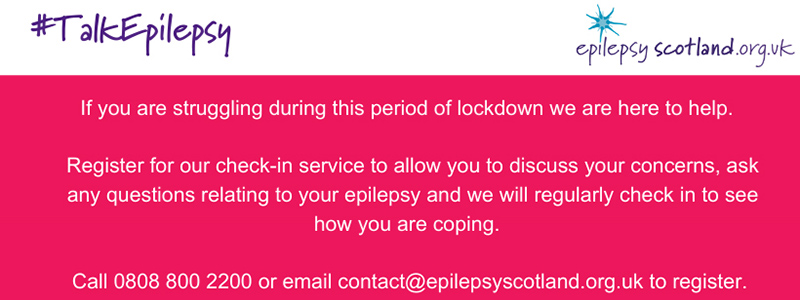
If there is one thing coronavirus lockdown has taught us, it has been to look after ourselves and others, and perhaps show a little more compassion. At this time, many companies have halted or reduced their services, but charities are still very much doing business as usual. If you are on lockdown and find yourself with some extra cash at the end of the month (as you have not been able to spend it on your usual luxuries, new clothes, dining out or fuel), then consider donating any amount to charity.
Here are four worthwhile causes that could do with your help, particularly at this time:
Cancer Support Scotland
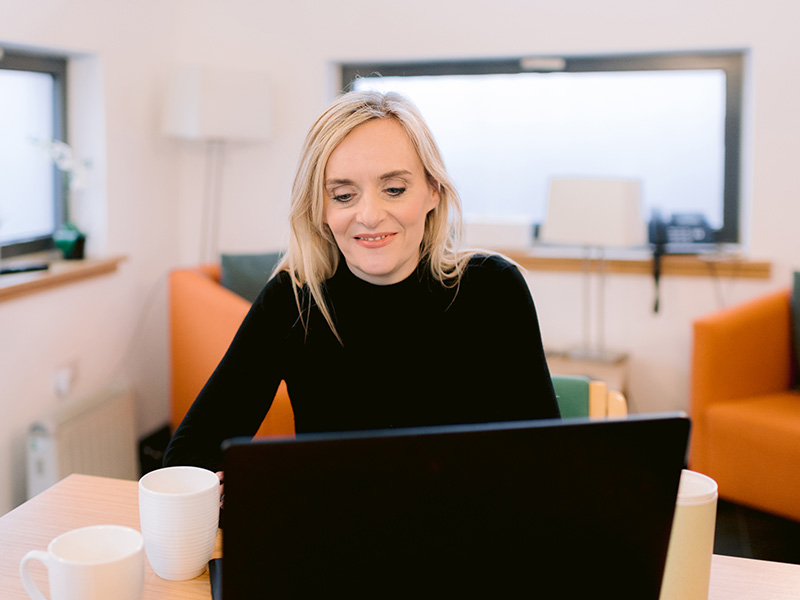
Cancer Support Scotland is dedicated to supporting anyone affected by cancer across Scotland.
It is passionate about providing free, person-centred wellbeing support that is never restricted by type or by region. The charity usually operates ‘face-to-face’ services delivering high quality counselling, complementary therapy, podiatry and stress management services to improve mental and physical wellbeing and enable those affected by cancer to actively engage in their communities.
Right now everyone is affected by Covid-19. It understands that for those affected by cancer, the challenges we all face are compounded by the higher risk the virus places on many people receiving cancer treatment. Cancer Support Scotland is there to support and alleviate rapidly escalating feelings of anxiety, stress, fear, germophobia, worry and isolation amongst those it supports. The charity has responded by re-designing its services and is now offering digital counselling over the phone and video, its ‘Here for You’ wellbeing calls are reaching out to over 150 people each week to ensure a regular point of contact and reduce isolation, its Self-help page on its website has audio for guided relaxation and visualisation, step-by-step breathing exercises, advice on managing stress and anxiety and self- care tools. It has also launched virtual Stress Management courses.
*If you or someone you know would benefit from our services please get in touch on 0800 652 4531 or email: wellbeing@cancersupportscotland.org Cancer Support Scotland’s Self-help page can be found by clicking here.

Deafblind Scotland
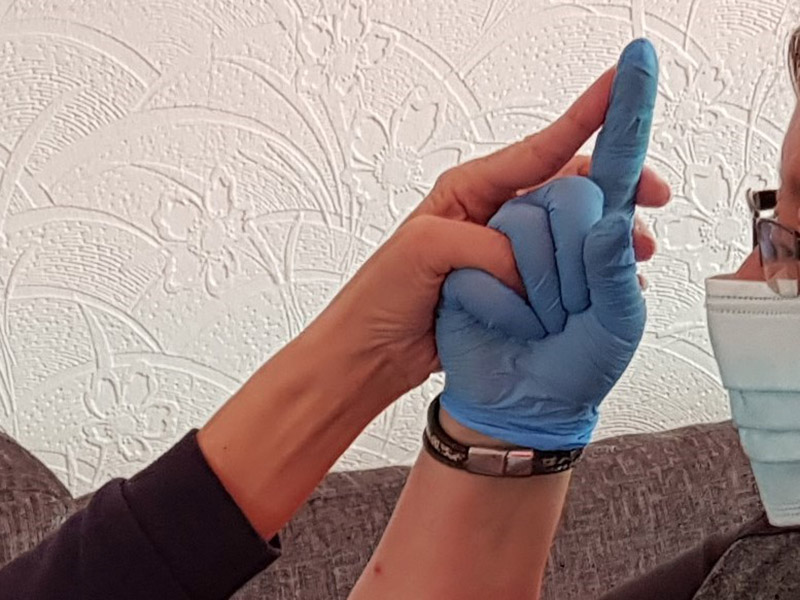
People who are deafblind have substantial visual and hearing loss which causes extreme difficulty with communication, information and mobility. Living with deafblindness can lead to acute levels of loneliness, frustration and stress putting people three times more at risk of depression than the general public. One of Deafblind Scotland’s members describes her life “like living in a cupboard with the door closed”. There are an estimated 34,000 deafblind people in Scotland.
Deafblind Scotland is Scotland’s principal authority on meeting the complex needs of individuals with acquired deafblindness. Many members have little in the way of support networks and are reliant on the support we can offer.
Often the charity’s specialist Guide/Communicators are the only person that might knock on a deafblind person’s door in a day. It is facing an unprecedented need to step in to provide advice and communication support and are being contacted by deafblind people, anxious about and affected by Covid-19.
Over 80% of its members are either over 70 or living with underlying conditions rendering them vulnerable or extremely vulnerable to Covid-19 and for them shielding or self-isolation may not end after the rest of us experience new freedoms.
*It has never been more important to ask you for support. If you can, please donate to the Deafblind Scotland Covid-19 Appeal by clicking here to help the charity reach as many deafblind people as it possibly can during these uncertain and worrying times.
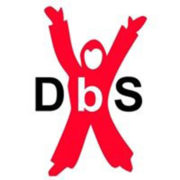
Spina Bifida Hydrocephalus Scotland
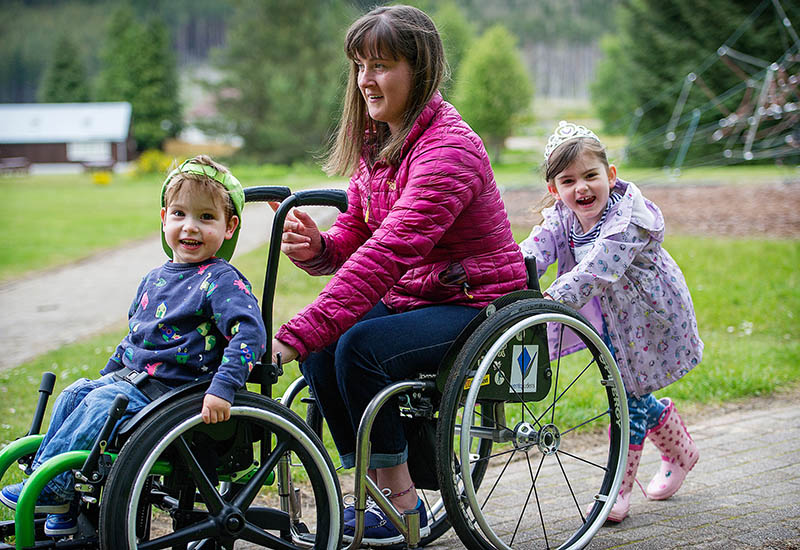
Spina Bifida Hydrocephalus Scotland (SBH Scotland) provide a lifetime commitment of support and information to all those affected by these complex, rare disabilities. Could you help SBH Scotland support its most vulnerable members at the most isolating of times?
Because of Coronavirus, SBH Scotland has reacted quickly and completely changed the way it does things; using the resources it has, utilising the specialist skills of its support team and introducing new technology. All to make sure its children, young people and adults know that even in the most isolating of times, they are not alone.
Almost half of SBH Scotland’s annual income this year will be wiped out due to the cancellation of fundraising events and, without donations, the charity simply won’t be able to continue its current support which includes: ensuring members have access to food and other essentials, helpline, video clinics, coronavirus hub, online mental health workshops, finance support, inclusive dancercise classes for those in wheelchairs, a check-in service for families and vulnerable adults, resources for the development of children and virtual social groups.
SBH Scotland is doing everything it can to make challenging times a little bit easier.
*You can make a difference today by making a donation to help save SBH Scotland’s vital support services in Scotland. You can donate by clicking here or call 03455 211 600 to make a donation. For further information go to SBH Scotland’s website here.
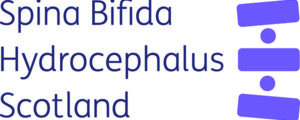
Epilepsy Scotland
Epilepsy is so much more than seizures. Epilepsy can lead to isolation, anxiety and depression. During the Covid-19 pandemic and lockdown restrictions feelings of isolation, anxiety and loneliness can be heightened.
Epilepsy Scotland has continued to provide all its lifeline services during the Covid-19 pandemic, with an increase in one-to-one support and (virtual) youth group meetings. Epilepsy Scotland introduced its new check-in service in April, for anyone affected by epilepsy who is feeling particularly alone or vulnerable during this time.
From May 20-26, Epilepsy Scotland is marking National Epilepsy Week with its online campaign #EpilepsyIsMoreThanSeizures highlighting the additional challenges faced those living with epilepsy, including depression, anxiety and sleep issues.
*You can support Epilepsy Scotland during this time by sharing its online campaign, using the hashtag #EpilepsyIsMoreThanSeizures or donating to its National Epilepsy Week Virtual Collections by clicking here.


Enjoy the convenience of having The Sunday Post delivered as a digital ePaper straight to your smartphone, tablet or computer.
Subscribe for only £5.49 a month and enjoy all the benefits of the printed paper as a digital replica.
Subscribe